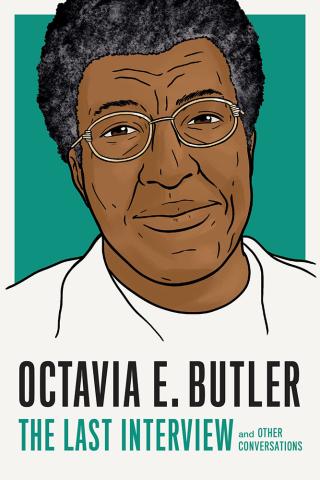Varan finns inte i lager, längre leveranstid.
| Finns i lager? | ||
|---|---|---|
| Webblager | ||
| Stockholm | Hämta i butik | |
| Göteborg | Hämta i butik | |
| Malmö | Hämta i butik | |
| Linköping | Hämta i butik | |
“I write about people who do extraordinary things. It just turned out that it was called science fiction.” - Octavia E. Butler
Octavia E. Butler's work broke innumerable barriers and helped open the field of science fiction to writers and readers it had never had before. As the first Black writer to win the coveted Nebula and Hugo Awards, her courage and vision left a peerless legacy for fans not just of science fiction, but of American literature. In this collection of 10 interviews, 3 of them never published, Butler speaks with candor and openness about her work, her imaginative mission, and the barriers she faced as a Black woman working in a genre dominated by white men.
Octavia Estelle Butler was a visionary writer of science fiction. As one of the first African American and female science fiction writers, Butler wrote novels that concerned themes of racial conflict, climate change, sexual and gender identity, women’s rights, and political disparity.
Butler won the genre's highest honors: Nebula, Hugo, Locus Award for Best Novelette, a PEN Lifetime Achievement Award, and the City College of New York’s Langston Hughes Medal in 2005. Additionally, in 1995 she was awarded the prestigious MacArthur “Genius” Grant —the only science fiction writer to receive this award.
In The New York Times, she was described as having laid the groundwork for the Afrofuturist movement before the term even existed.
Octavia E. Butler's work broke innumerable barriers and helped open the field of science fiction to writers and readers it had never had before. As the first Black writer to win the coveted Nebula and Hugo Awards, her courage and vision left a peerless legacy for fans not just of science fiction, but of American literature. In this collection of 10 interviews, 3 of them never published, Butler speaks with candor and openness about her work, her imaginative mission, and the barriers she faced as a Black woman working in a genre dominated by white men.
Octavia Estelle Butler was a visionary writer of science fiction. As one of the first African American and female science fiction writers, Butler wrote novels that concerned themes of racial conflict, climate change, sexual and gender identity, women’s rights, and political disparity.
Butler won the genre's highest honors: Nebula, Hugo, Locus Award for Best Novelette, a PEN Lifetime Achievement Award, and the City College of New York’s Langston Hughes Medal in 2005. Additionally, in 1995 she was awarded the prestigious MacArthur “Genius” Grant —the only science fiction writer to receive this award.
In The New York Times, she was described as having laid the groundwork for the Afrofuturist movement before the term even existed.
